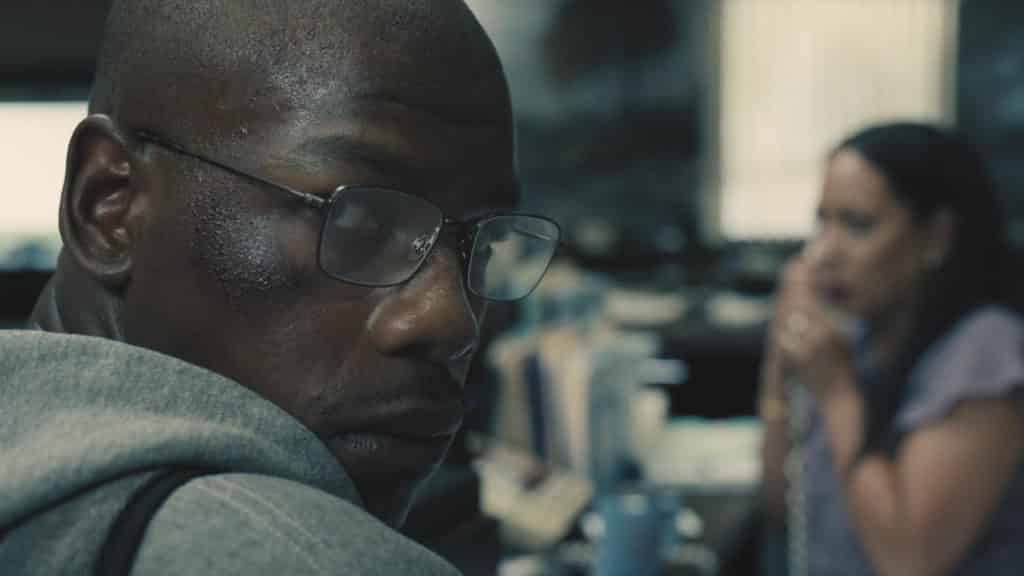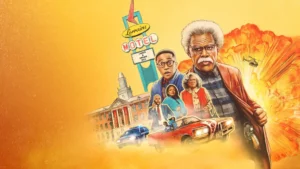Summary
I admired John Boyega’s electric performance in Breaking, but the filmmakers let the human interest in Brian Brown-Easley’s story fall between the cracks.
Breaking, originally titled 892, was released at Sundance to rave reviews. Yes, the story is timely. The main character is a bit different and refreshing in how he goes about breaking the law, putting good people in danger, and still always treating them with the utmost polite respect (well, most of the time anyway).
The performances are terrific. Nicole Beharie is wonderful as a bank employee who saved a dozen lives that day. The late Michael Kenneth Williams gives his best film performance. Sadly, he shows his potential for larger roles in film that now will never come. Finally, the film is carried by an electric John Boyega, who is even better here than in Small Axe.
So, I was surprised watching a movie that missed a handful of opportunities to elevate itself from the dozens of cliches forced upon a true story that had no need for them.
Boyega plays Brian Brown-Easley, a former decorated Marine going through a tough time. He is divorced, has a precious little girl, and is in financial trouble after serving his country.
Like many veterans over the past twenty years, he is remarkably close to becoming homeless. How did it get to this point? That’s because the Veteran’s Affairs office is cutting his benefits because of unfinished schooling.
This is an issue where veterans are preyed upon by for-profit schools targeting their G.I. Bill and overcharging services. Now, Brian is faced with a decision to provide for himself and his daughter; he decides to rob a bank in 2017. He walked into a Wells Fargo and said he had a bomb in his bag. Not for the money, though, but for the publicity to get back the benefits he rightfully earned.
Director Abi Damaris Corbin (The Suitcase) adapted the script with scribe Kwame Kwei-Armah (Walter’s War) from an article by Aaron Gell. They adequately capture enough tension credited to the cast because this is strictly an actor’s showcase.
The script underplays and never goes beyond surface-level insights into this veteran’s mental health and professional and social support. Nor does the script play with moral ambiguity and police overreach issues.
All of this could have been shaped and used in the script to engage the viewer in Brown-Easley’s mindset for a spectacular character study. Instead, these are used to unfold a mystery behind his actions that are already apparent to anyone paying attention. Since the dialogue is so chock-full of exposition and information, it’s as if you are reading a promotional fact sheet on the matter.
I admired the intent of Breaking, but the message and themes are muddled. They take a back seat to then execute a generic hostage film. The filmmakers, frankly, let the story’s human interest fall between the cracks.




